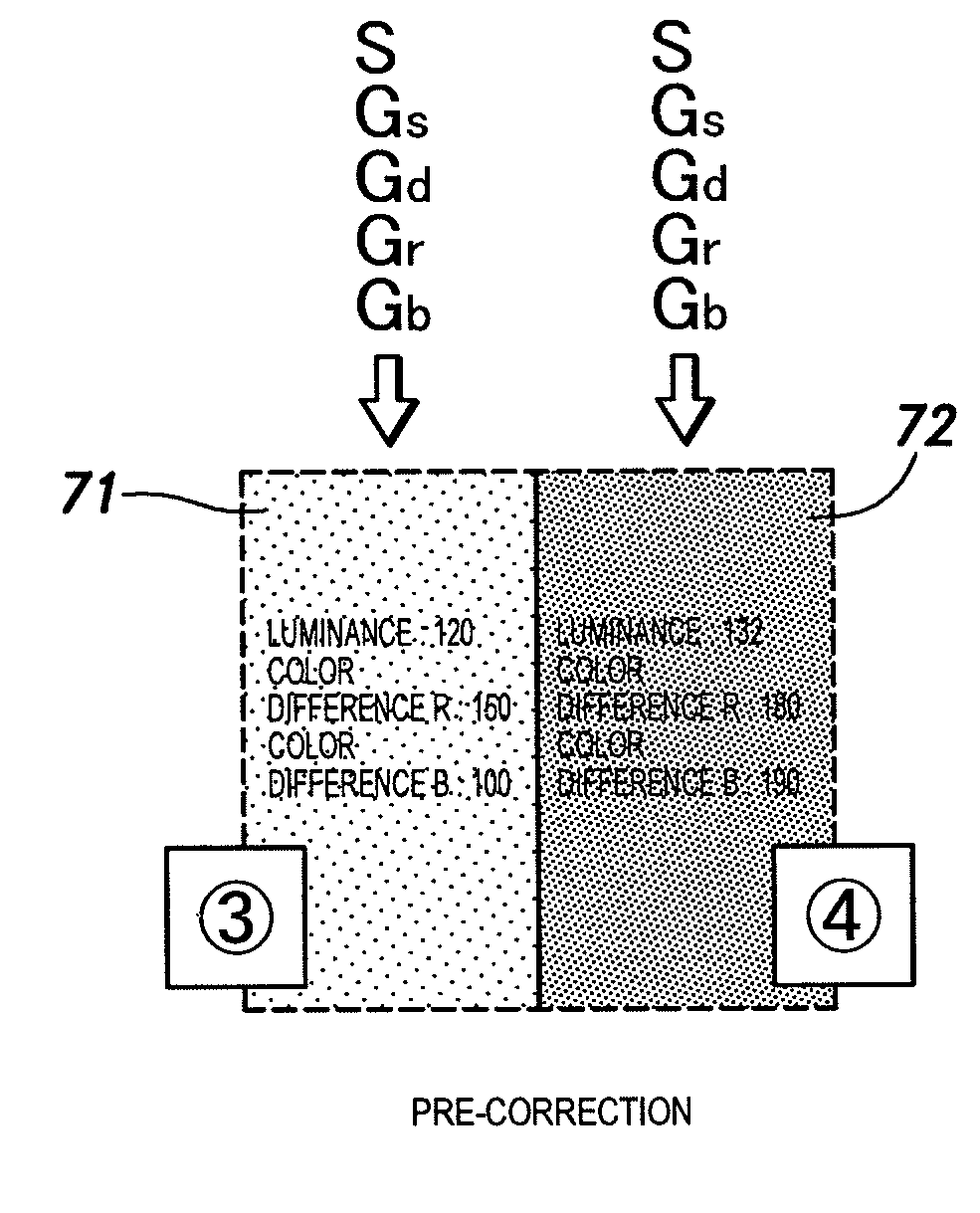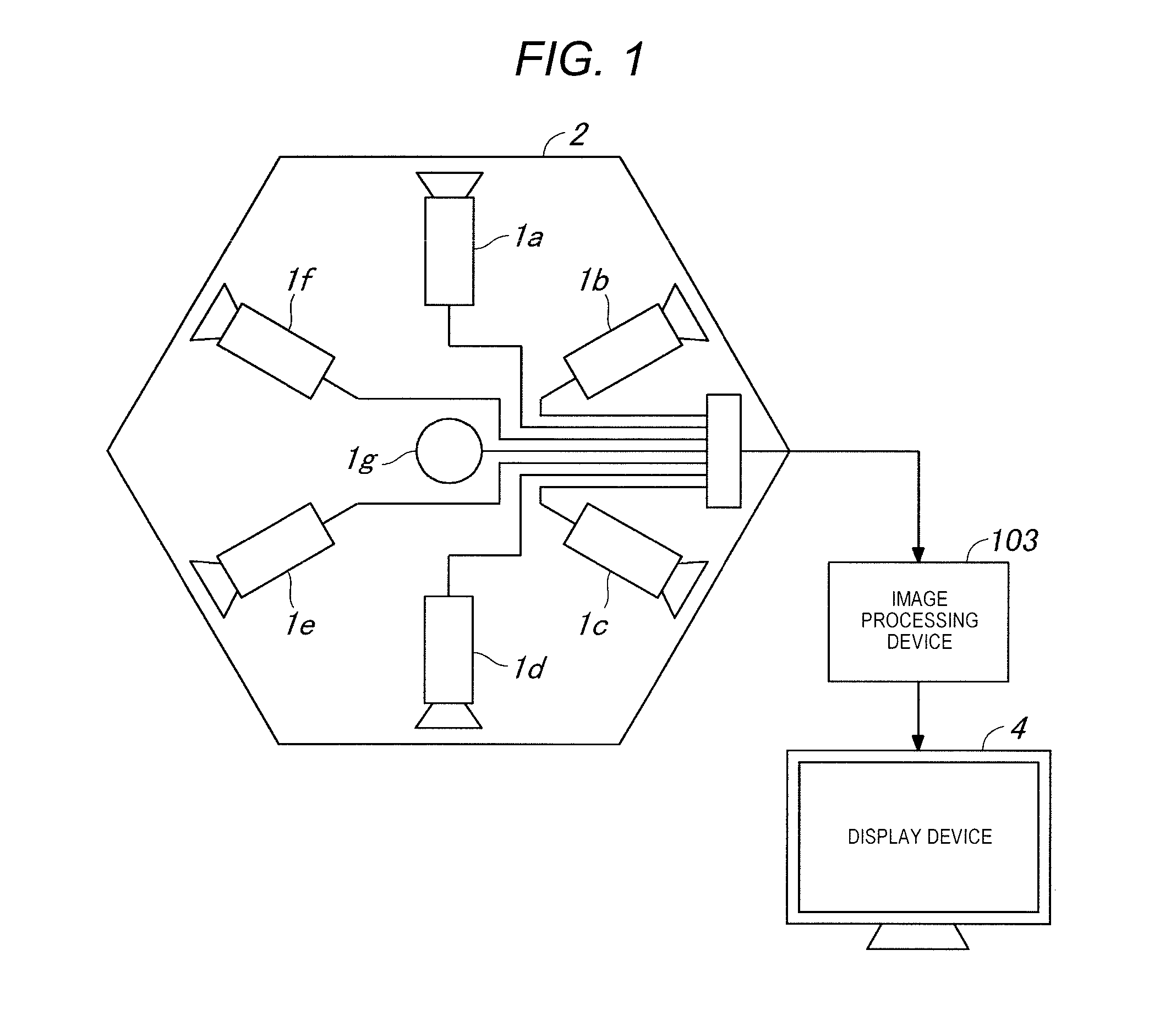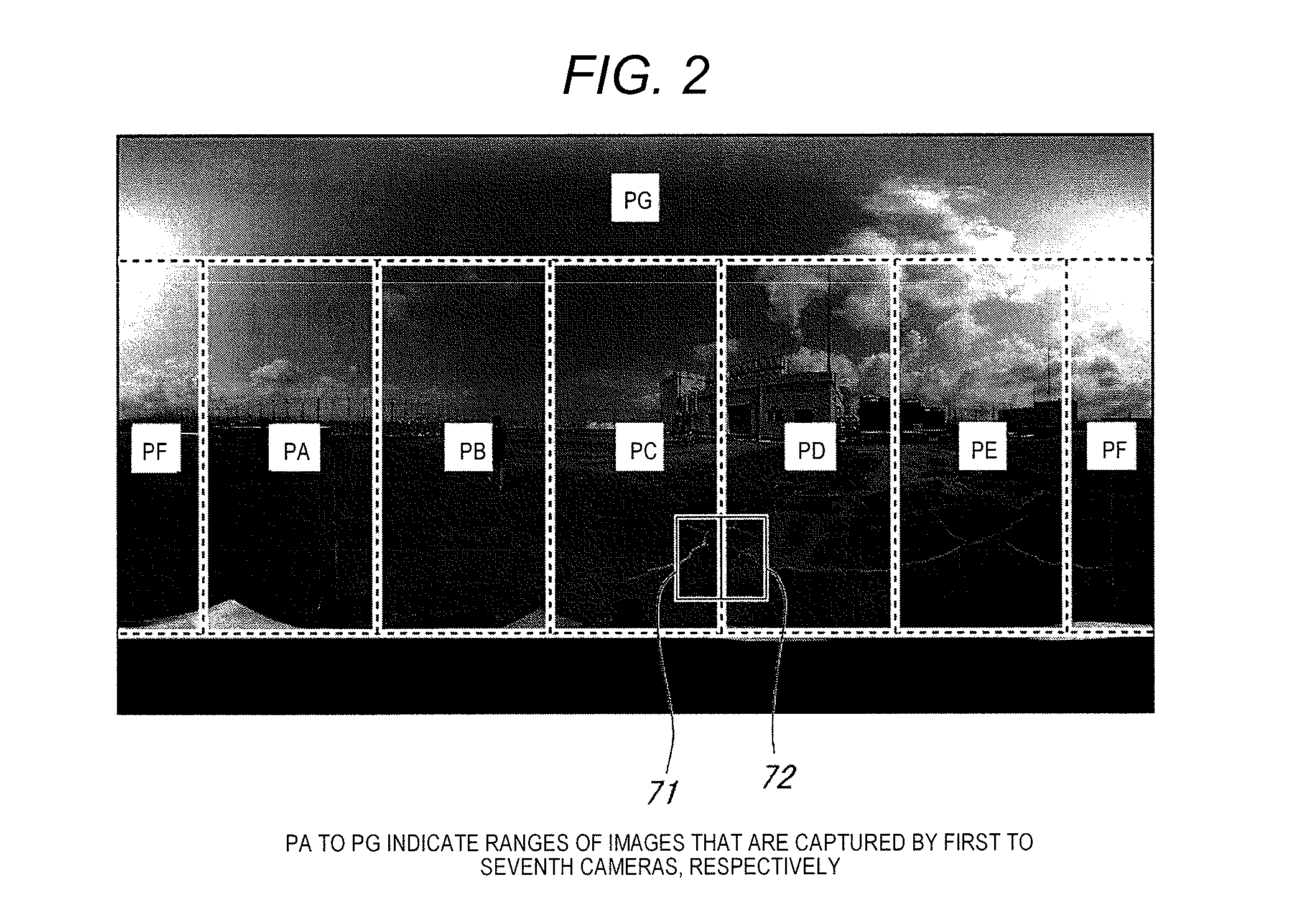Image processing device, imaging system and imaging apparatus including the same, and image processing method
a technology of image processing and imaging system, applied in image enhancement, color signal processing circuit, instruments, etc., can solve the problems of unnatural motion in the shape of the photographic subject that appears, loss of a portion of the foreground shape, and loss of two foreground shapes, so as to reduce the amount of parallax correction and prevent unnatural motion
- Summary
- Abstract
- Description
- Claims
- Application Information
AI Technical Summary
Benefits of technology
Problems solved by technology
Method used
Image
Examples
first exemplary embodiment
[0045]FIG. 1 is a diagram illustrating an entire configuration of an image processing system according to a first exemplary embodiment. FIG. 2 is an explanatory diagram illustrating a composite image that is generated in image processing device 3 which is illustrated in FIG. 1 and is displayed on display device 4.
[0046]The present image processing system, as illustrated in FIG. 1, includes camera unit 2 having first to seventh cameras 1a to 1g, image processing device 3, and display device 4.
[0047]Cameras 1a to 1g each have a wide angle of view (for example, 120 degrees). First to sixth cameras 1a to 1f are arranged at equal distances in a circumferential direction in such a manner that an optical axis is in a radial pattern in an approximately horizontal direction. Seventh camera 1g is arranged in such a manner that the optical axis is in approximately vertical direction. Cameras 1a to 1g are arranged in such a manner that portions of image capture areas of two adjacent cameras amo...
second exemplary embodiment
[0078]Next, a second exemplary embodiment is described. FIG. 7 is an explanatory diagram illustrating camera unit 21 according to the second exemplary embodiment. FIG. 8 is a functional block diagram illustrating a schematic configuration of image processing device 23 according to the second exemplary embodiment. What is particularly not mentioned hereinafter is the same as in the exemplary embodiment described above.
[0079]According to the first exemplary embodiment, the amount of parallax correction is set to be calculated from the captured images that are acquired by cameras 1a to 1g, but according to the second exemplary embodiment, as illustrated in FIG. 7, depth sensor (distance detection devices) 22a to 22f are provided in camera unit 21 and the amount of parallax correction is set to be calculated based on results of detection by depth sensors 22a to 22f.
[0080]Depth sensors 22a to 22f are distance image sensors that detects a depth of an image, that is, a distance to a photo...
third exemplary embodiment
[0082]Next, a third exemplary embodiment is described. FIG. 9 is a diagram illustrating an entire configuration of an image processing system according to a third exemplary embodiment. FIG. 10 is a functional block diagram illustrating a schematic configuration of PC 31 that is illustrated in FIG. 9. FIGS. 11A to 11C are explanatory diagrams illustrating a screen that is displayed on display device 4 that is illustrated in FIG. 9. What is particularly not mentioned hereinafter is the same as in the embodiment described above.
[0083]The image processing system according to the third exemplary embodiment, as illustrated in FIG. 9, includes camera unit 2, PC 31 (an information processing apparatus), display device 4, and a mouse (an operation input device) 32.
[0084]As illustrated in FIG. 10, PC 31 includes image accumulator 41, first image processor 42, second image processor 43, image abnormality detector 44, correction area setter 45, amount-of-parallax-correction setter 46, and input...
PUM
 Login to View More
Login to View More Abstract
Description
Claims
Application Information
 Login to View More
Login to View More - R&D
- Intellectual Property
- Life Sciences
- Materials
- Tech Scout
- Unparalleled Data Quality
- Higher Quality Content
- 60% Fewer Hallucinations
Browse by: Latest US Patents, China's latest patents, Technical Efficacy Thesaurus, Application Domain, Technology Topic, Popular Technical Reports.
© 2025 PatSnap. All rights reserved.Legal|Privacy policy|Modern Slavery Act Transparency Statement|Sitemap|About US| Contact US: help@patsnap.com



